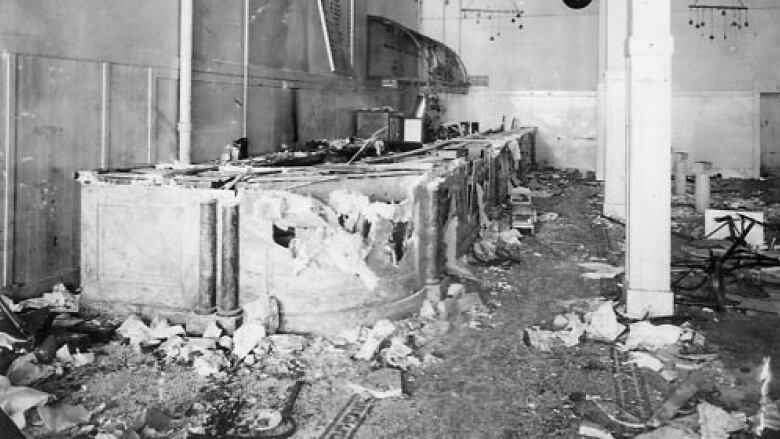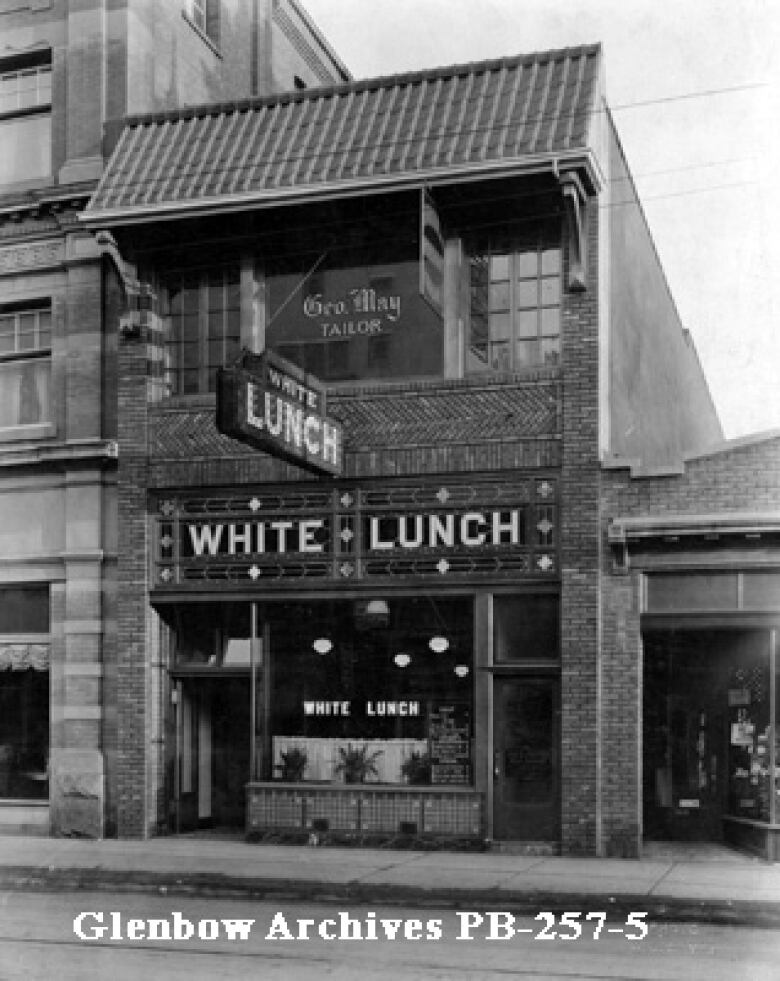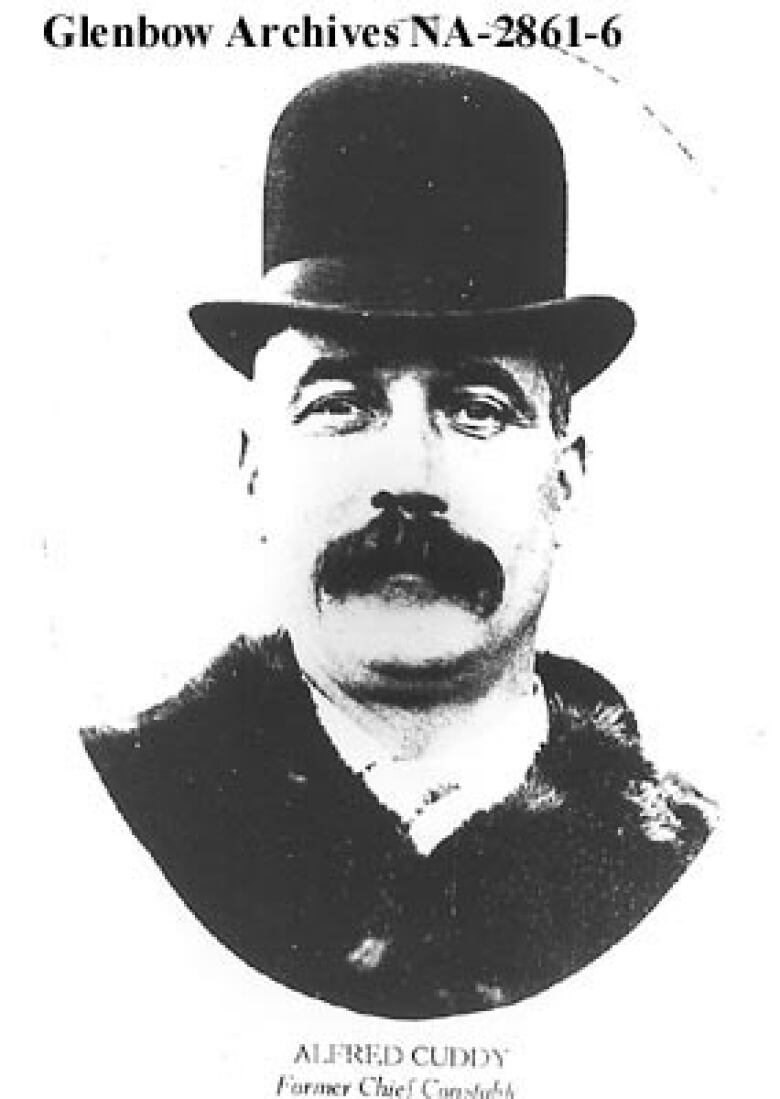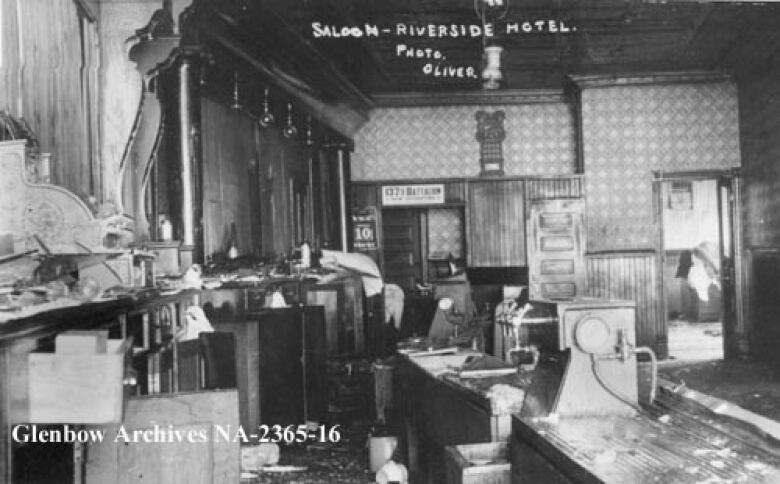Rumours spur anti-German riots in Calgary 100 years ago
Mayor even suggested businesses not employ Germans or Austrians

Originally published Feb. 10.
There are all kinds of moments in a city's history. Some moments are celebratory. Some are disastrous. And yes, some are shameful.
Calgary's melting pot has added many new ingredients over the decades as various immigrants and immigrant communities arrived.
Today we think of diversity and integration as badges of civic pride.
But it was not always so.
One hundred years ago today, there was a racially-motivated riot in Calgary.
A riot of rumour
It's Feb.10, 1916 andCanada, as part of the British Empire, is at war with Germany and Austria-Hungary.
The battles that started in 1914 are dragging into another year.
A week earlier, the parliament buildings in Ottawa weredestroyed by fire. Rumours spread that the fire may have been the work of a German saboteur.
In Calgary, wartime emotions are also running high. The city is a staging area for troops before they are shipped overseas. This in a place which alsohas the largest population of German-speaking immigrants in Alberta.
The White Lunch restaurant at 128 Eighth Ave S.E.is a popular spot. Calgary-based soldiers are often there to grab a bite to eat.
And that'swhere the trouble begins.

"The whole thing, it starts with the rumour a kernel of truth that they're firing veterans and hiring enemy aliens," says Calgary historian Harry Sanders.
Although soldiers are familiar and friendly with the manager Frank Naegel, rumours spread that the restaurant has fired two returning servicemen and replaced them with a couple of "enemy aliens" a German and an Austrian immigrant.
It wasn't true.

But Naegel was worried. So worried that he contacted Calgary military officials about the rumours. But it was too late.
On the evening of Feb.10an angry mob of uniformed soldiers some obviously drunk attacked and looted the White Lunch. They also looted a dance studio above the restaurant and a nearby lunch room.
Police and fire officials were franticallycalled. They ordered the soldiers to leave, but were ignored.
A crowd of citizens formed outside the building, watching. According to one newspaper report, as many as 2,000 people gathered. Police were helpless.
In his report to city council, Chief Constable Alfred Cuddy stated that he was responsible for not ordering his officers to use force to disperse the rioting troops and citizens. As Cuddy put it, doing so "would only tend to antagonize the soldiers and might possibly have resulted in murder."
Calgary was in shock.
Mob law is something we cannot afford to tolerate.Calgary Daily Herald
After the night of lawlessness, there was outrage.
The Calgary Daily Herald ran an editorial saying"Mob law is something we cannot afford to tolerate in Calgary."
It attacked the anti-German rumours, insisting that whatever precipitated the violence was "insufficient to have warranted such lawless proceedings."
Local military leaders also denounced the attacks. But more violence was to come.
Calgary's Germantown attacked
On February 11th, another angry mob of several hundred soldiers and citizens marched across the Langevin Bridge the same steel-girder bridge which spans the Bow River today and attacked the Riverside Hotel.
Again, rumours and booze fuelled the riot.
The buzz was the "German"owner of the hotel had hosted a meeting of pro-German sympathizers who had celebrated the recent burning of the Canadian parliament buildings.
The Riverside, however, was actually owned by a British immigrant.
But it was located in Riverside, that part of Calgary also known as Germantown home to several hundred Germans and German owned businesses. Thoseresidents were perceived as Germans but manywere actually German-speaking immigrants from Russia.
For two hours, the mob looted alcohol from the hotel's bar and ransacked every room in the Riverside Hotel. Rumours raced around the streets of Calgary about other potential targets.

In his report to city council, police chief Cuddy referred to this attack as "a complete surprise"and that he and military authorities were "caught wholly unprepared".
Eventually the military itself dispersed the crowd. But Calgary remained tense.
Calgary gets some unwanted national attention
The Calgary riots made newspaper headlines as far away as Ontario. The Governor General condemned the troops' behaviour, and the riot was even raised in the House of Commons.
Local officials were pressured into action.
A handful of soldiers faced charges for the looting of the Riverside Hotel.
The local military commander forbid soldiers from entering local bars and told Ottawa that efforts would be made to keep order, given the "anti-German excitement."
Armed military guards were posted at places like city hall, the Palliser Hotel and the local brewery to ensure the riots didn't repeat.
City council called a special meeting on a Saturday morning to address the anti-immigrant riots.
But amazingly, to calm the civic unrest and quell the violence in the streets, council voted 9-0 to immediately fire any "enemy aliens" (read: Germans/Austrians) employed by the City and replace them with returned soldiers.
Mayor Michael Costello went further, saying all employers should make sure they are not employing Germans or Austrians "in order to protect their own property."
The anti-German sentiment had won the day.
'We stand to learn from the past.'Harry Sanders, Calgary historian
HistorianHarry Sanders says: "It's hard to place ourselves back in 1916 but isn't that the point? One would like to think we've come a long way since that time and something like that wouldn't occur again."
Sanders points out there have been other racially-motivated events in Calgary's history. But to him, the importance of these stories is to learn from them.
He says there's a benefit in having an honest or complete view of our past because it's not all positive.
"History isn't an iteration of all the great things we did, that led to this proud moment in which we live. We stand to learn from the past if we're honest about it and remember the bad with the good."
Here are the minutes from the special city council meeting called on a Saturday to deal with the riots:
Calgary at a Crossroads is CBC Calgary's special focus on life in our city during the downturn. A look at Calgary's culture, identity and what it means to be Calgarian. Read more stories from the series at Calgary at a Crossroads.













_(720p).jpg)


 OFFICIAL HD MUSIC VIDEO.jpg)
.jpg)



























































































